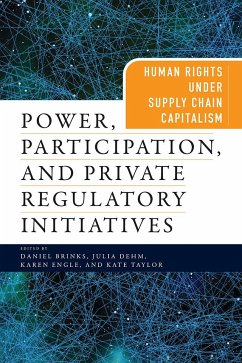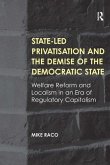"Private regulatory initiatives (PRIs) span a range of industries, sectors, and contexts, with some focusing on discrete supply chains and others on industries and sectors in specific countries or regions. The contributions in this volume coalesce around one basic claim: the inequalities and disparities of power and wealth that are a key characteristic of the contemporary global economy also mark the origins and operation of PRIs (though to varying degrees). This collection highlights the need for discussions about labor, environmental, and other human rights accountability within supply chains to be situated within a broader analysis of the political economy of contemporary supply chain capitalism. It seeks to enrich discussions of PRIs by bringing into conversation the lenses of distributive justice and political economy alongside human rights. Together, the chapters suggest that PRIs will be more legitimate and work best when those workers and communities who are most directly affected are given significant roles in norm production, monitoring, and enforcement. The contributions in this volume demonstrate that understanding how value is legally and contingently created and unequally distributed to different actors along a supply chain is key to opening up opportunities for increasing participation, improving conditions at the "bottom" of that chain, and potentially shifting inequalities within production networks"--
Hinweis: Dieser Artikel kann nur an eine deutsche Lieferadresse ausgeliefert werden.
Hinweis: Dieser Artikel kann nur an eine deutsche Lieferadresse ausgeliefert werden.








